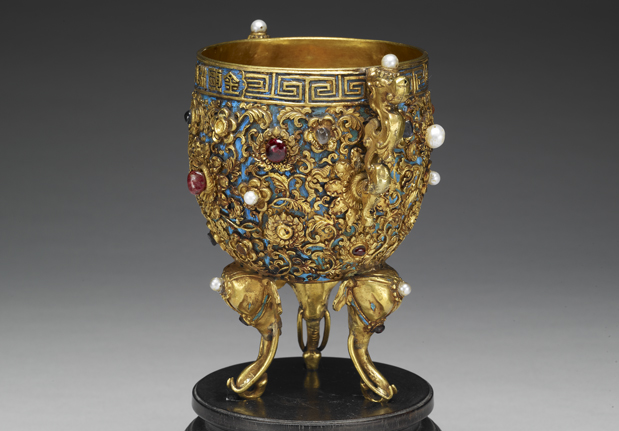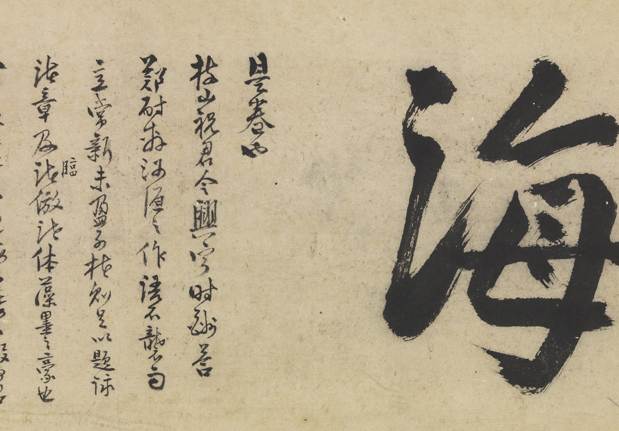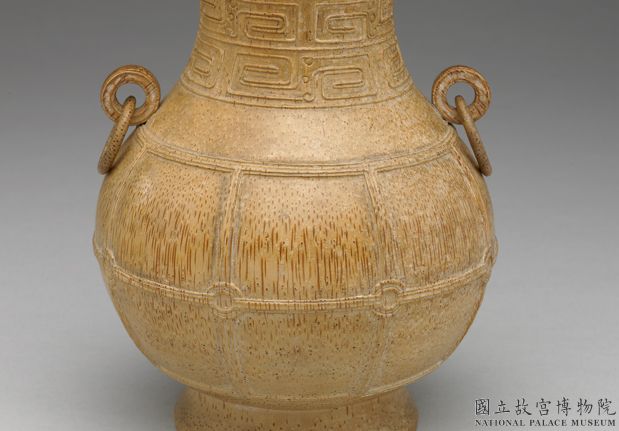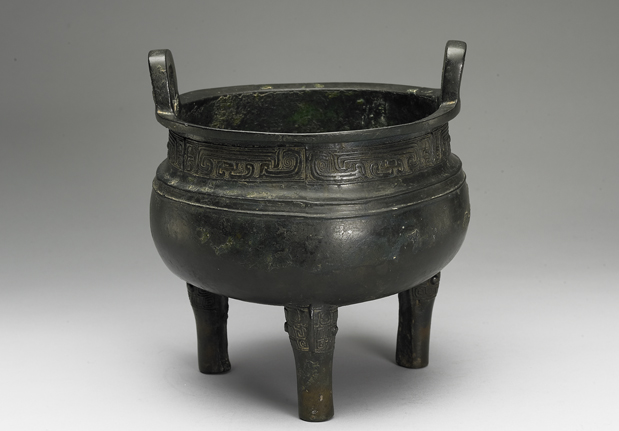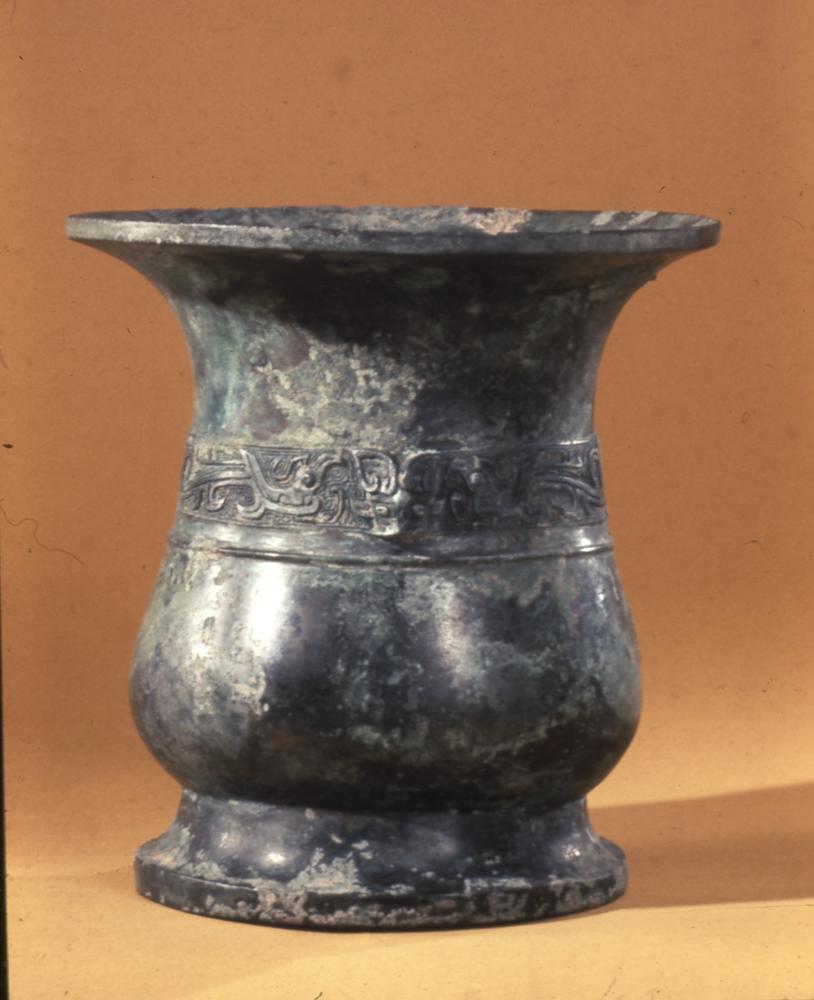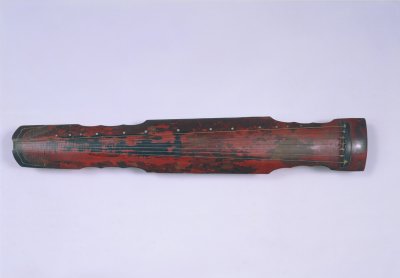Period:Ming dynasty Production date:1573-1620 (circa)
Materials:porcelain, gold,
Technique:glazed, gilded, kinrande, underglazed,
Subjects:bird phoenix bamboo
Dimensions:Diameter: 19 centimetres Height: 3.50 centimetres
Description:
Porcelain dish with underglaze blue, overglaze red and gold ‘kinrande’ decoration. This dish has rounded sides and a flattened upwardly slanting rim. It is painted in underglaze blue, with overglaze enamels and ‘kinrande’ [gold brocade] decoration. In the centre is a phoenix standing on a rock, with ‘lingzhi’ and bamboo. The rim is enamelled red, over which there is a faint gold design. The base carries an inscription reading: 富 贵 佳 器 ‘Fu gui jia qi’ [Fine vessel for the rich and honourable].
IMG
![图片[1]-dish BM-1937-0716.85-China Archive](https://chinaarchive.net/Ming dynasty/Ceramics/mid_RRC10397.jpg)
Comments:Harrison-Hall 2001:Similar dishes were produced without additional ‘kinrande’ decoration around the rim. These were included in the cargo of the Witte Leeuw, which sank in 1613 (see BM 1921.1107.1), providing us with an approximate date for this dish. Other dishes with loosely related designs were shipped far beyond China’s frontiers. Just such a dish was excavated from Donceles Street in the Zocalo area of Mexico City and is now in the Museo del Templo Mayor. That area suffered severe flooding between 1629 and 1639, which provides a stratigraphic marker for the site. Others were recovered from sites off the California coast and from Drake’s Bay. Another example is in the Boston Museum of Fine Arts, which displays minor variations in design to the present piece.
Materials:porcelain, gold,
Technique:glazed, gilded, kinrande, underglazed,
Subjects:bird phoenix bamboo
Dimensions:Diameter: 19 centimetres Height: 3.50 centimetres
Description:
Porcelain dish with underglaze blue, overglaze red and gold ‘kinrande’ decoration. This dish has rounded sides and a flattened upwardly slanting rim. It is painted in underglaze blue, with overglaze enamels and ‘kinrande’ [gold brocade] decoration. In the centre is a phoenix standing on a rock, with ‘lingzhi’ and bamboo. The rim is enamelled red, over which there is a faint gold design. The base carries an inscription reading: 富 贵 佳 器 ‘Fu gui jia qi’ [Fine vessel for the rich and honourable].
IMG
![图片[1]-dish BM-1937-0716.85-China Archive](https://chinaarchive.net/Ming dynasty/Ceramics/mid_RRC10397.jpg)
Comments:Harrison-Hall 2001:Similar dishes were produced without additional ‘kinrande’ decoration around the rim. These were included in the cargo of the Witte Leeuw, which sank in 1613 (see BM 1921.1107.1), providing us with an approximate date for this dish. Other dishes with loosely related designs were shipped far beyond China’s frontiers. Just such a dish was excavated from Donceles Street in the Zocalo area of Mexico City and is now in the Museo del Templo Mayor. That area suffered severe flooding between 1629 and 1639, which provides a stratigraphic marker for the site. Others were recovered from sites off the California coast and from Drake’s Bay. Another example is in the Boston Museum of Fine Arts, which displays minor variations in design to the present piece.
© Copyright
The copyright of the article belongs to the author, please keep the original link for reprinting.
THE END
